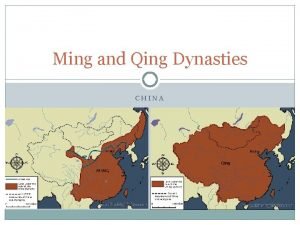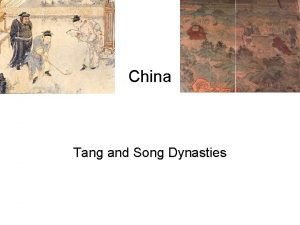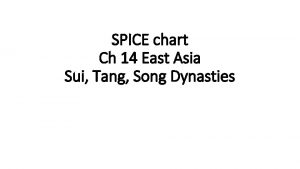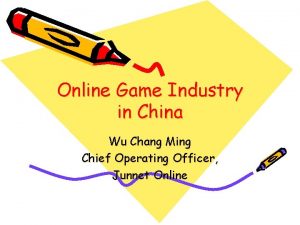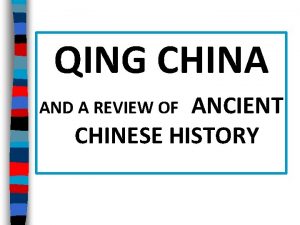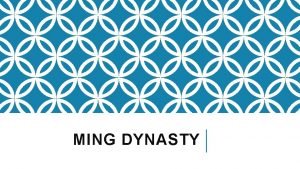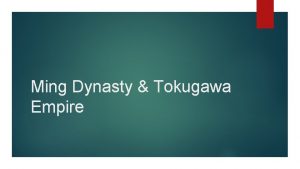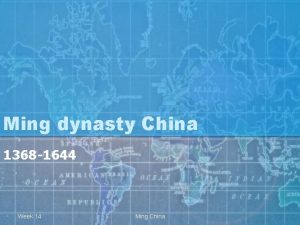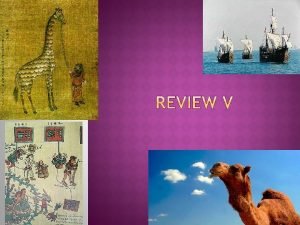Ming Dynasty 1368 Hongwu and a peasant army







- Slides: 7

Ming Dynasty 1368: Hongwu and a peasant army drove out the Mongols. Ming dynasty lasted until 1644. During reign: - built a strong centralized government based on Confucian principles. - reinstated the Civil Service exam.

Ming Dynasty Also built large fleets. Zheng He- led fleets to southeast Asia and the Indian Ocean, and to Africa a century before Europe. Instead of colonizing Chinese turned inward.

Ming Dynasty Changed counterfeited money to a “single-whip” system based on silver currency. - Discovery of American silver caused inflation. Sixteenth century problems arose: - Pirates raiding port cities - Portuguese setting up in Macao. - 17 th Century Famine cripple economy.

Decline of the Ming and rise of Qing Peasant uprisings occurred due to famine. 1644 – Ming rulers invited Qing warriors from Manchuria to help put down the uprising. - Qing ousted the emperor and the Qing or Manchu dynast rose and lasted until 1912. - Carried on much of the isolation.

Qing Dynasty Not ethnically Chinese: - Forbid Chinese to learn the Manchu language or marry Manchus. Manchu only made up 3% of the population. - Needed Chinese to help run the country – Civil Service Exam reaches new height.

Kangxi 1662 -1722 Confucian Scholar Chief Successor – Qianlong ruled from 1735 – 1795. Both Emperors: - supported the arts - Expanded the empire: Kangxi conquered Taiwan and extended to Mongolia, Central Asia, and Tibet. Qianlong added Vietnam, Burma, and Nepal to the Vassal states of China.

Qing Dynasty Did not aspire to conquer the world. Allowed trade with Europeans but very vigilant with the trade. 1724: Christianity was banned. 1757: trade was limited to just one city, Canton. Trade remained constant and a rise of a Chinese merchant class occurred.

